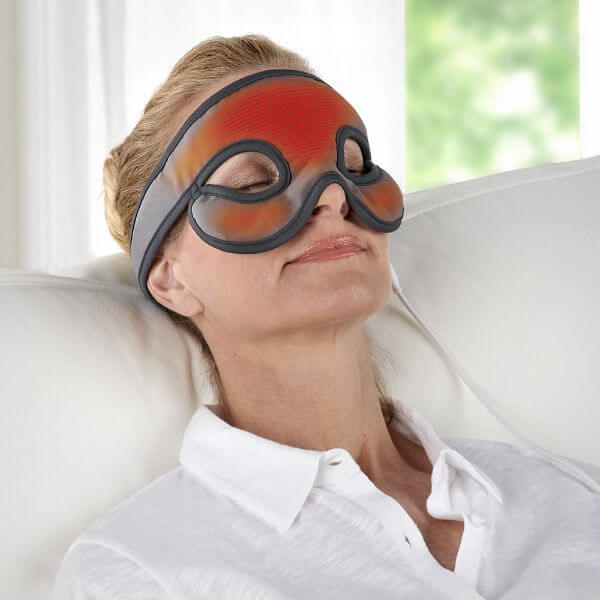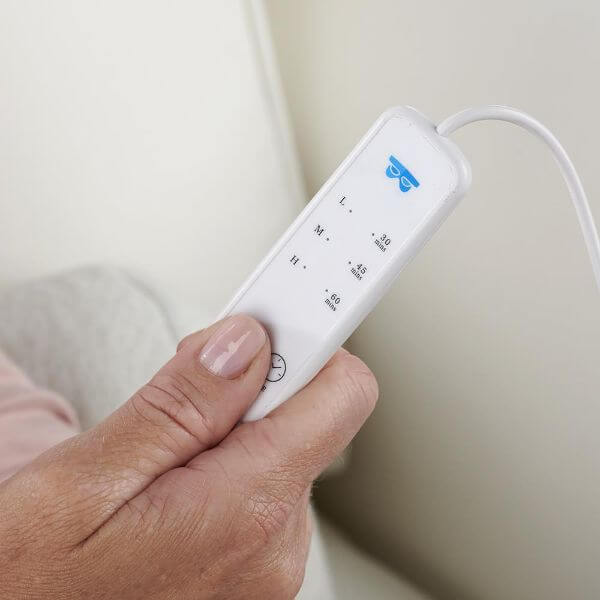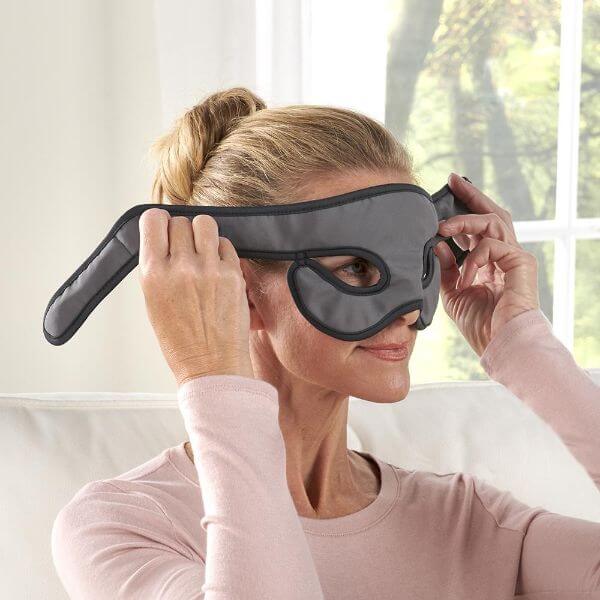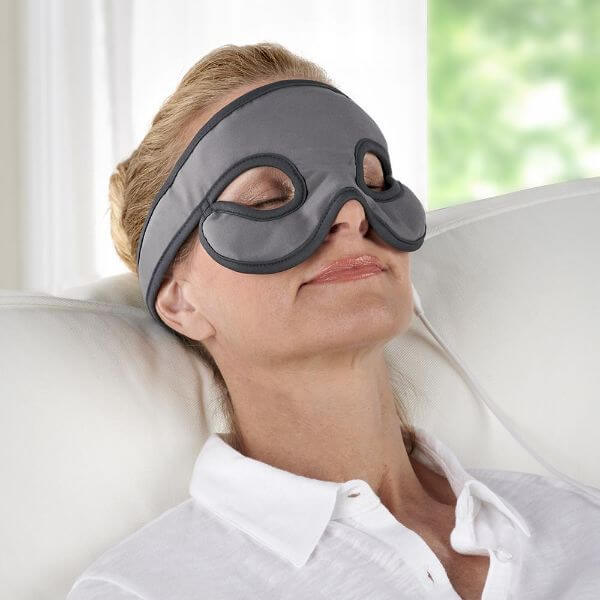This heated face mask is designed to naturally alleviate sinus pressure, congestion, and runny noses.
Typical irrigation systems usually require uncomfortable apparatuses in your nasal cavity, while commonly used drugs may cause side-effects.
This sinus face mask uses safe and controlled heat to help loosen mucus.

It has three heat settings between 105° F and 140° F and has an automatic safety shut-off.

The mask contours to the shape of your nose and face and has an adjustable strap for custom sizing.
It has a 9 1/2′ cord that plugs in AC.
Does the mask really work?

According to a customer Susan, it works perfectly for her.
She was suffering from sinus pain every morning until purchasing this mask. Now she is headache-free, She now breathes freely and she thanks this mask for her relief.
As soon as she wakes up in the morning she plugs in the unit, place the mask on her face for 30 minutes and that’s it! She does not use sinus pills or nasal sprays any more.
She never knew that heat would be the treatment for her sinus problem.

Sinus Pain Explained
Sinus problems are common and troublesome issue for many people. The sinuses can become inflamed as a consequence of any common cold and the symptoms may resolve quickly.
Unfortunately in some people they can become more severe and prolonged and can be a source of discomfort over months to years.
The symptoms of sinus problems may include breathing problems through the nose, a runny nose, a drip down the back of the nose, also known as a post nasal drip, a loss or reduction in the sense of smell, facial pains or headaches or sometimes a chronic cough.
Chronic rhinosinusitis is an inflammatory condition of the nose and sinuses, lasting three or more months.
It’s really an umbrella term for a range of clinical conditions that eventually present with similar symptoms. The diagnosis is considered when two of the following are present:
- nasal obstruction or a blocked nose
- a runny nose or drip down the back of the nose
- facial pain or headaches
- a loss or reduction in the sense of smell
Chronic rhinosinusitis has a large number of possible causes and more than one factor may be present in an individual.
Anatomical problems include a deviated septum, enlarge turbinates or extra sinus air cells.
Allergic rhinitis or hay fever can be an issue, a chronic bacterial or even a fungal infection can be the cause. In some people it’s their immune system. Nasal polyps or systemic diseases can also really be factors.
The first step in the treatment is to visit your doctor and discuss the problems you have been having.
If things reach the point where your doctor cannot completely cure your sinus problems, they then refer you to an ENT specialist.
Your doctor can organize a blood test or skin prick testing to look for allergic rhinitis. Generally skin prick testing is more accurate than a blood test. A CT scan is the next step.
Your doctor can prescribe a range of treatments that may be helpful. These include:
- nasal steroid sprays
- oral antibiotics, often given over a three-month period
- antihistamine tablets and sprays
- nasal saline sprays and rinses
- occasionally oral corticosteroid medications, like prednisone
The next step is to ask for a referral to an ear, nose and throat specialist. An ENT specialist will begin by going over the history of your sinus, symptoms and trying to organize them to diagnose possible contributing factors.
They will use a tiny telescope to then look at the lining of your nose and sinuses.
The ENT specialist may then go on to organize additional blood tests and probably a CT scan of your sinuses. Occasionally an MRI will be ordered as well.
Some sinus problems can be treated with medicines. Other problems require surgery.
Surgery is generally avoided if the problem can be treated with medicines. Specific problems that are treated with surgery include:
- a deviated nasal septum
- narrow sinus openings
- additional drainage pathways and air cells
- enlarged inferior turbinates
- nasal polyps
Occasionally nasal polyps can also be treated medically. Sinus surgery is generally very safe, but like all surgery, there are risks that need to be considered. Safety has improved considerably in recent years with the advent of high-definition cameras, endoscopes and image guidance.
Buy Sinus Heat Mask Here: www.reviewtique.com/sinus-pressure-mask
How to Relieve Sinus Pressure at Home
Another way you can try to help get rid of the sinus pressure and sinus pain that you’re having, that’s keeping you up all night, is without the use of any medications. All you need is your two fingers.
Here’s how it works.
We are not going to get into the details, we want this to be quick.
There are six points on your face that will relieve pressure in your sinuses.
The first two are at the inner margin of your eyebrow. You apply pressure there for ten to thirty seconds until you start to feel your forehead and the pressure clear out a little bit and then you move on to the next points.
The next two points are where the crease of your cheek meets your nose. Apply pressure for ten to thirty seconds until you start to feel things clear out.
And then you move on to the last two points, at the lower crease, right underneath your cheekbones. Apply a little bit of pressure there, mild to moderate, for anywhere from ten to thirty seconds, or until you feel your sinuses start to clear out, and then you release.
You can repeat this as much as you’d like. If you do it too much you might feel a little bit sore.
These points are used in traditional Chinese medicine in acupuncture to help among many other things relieve pressure in your sinuses. For some people they work really, really well.
If you have a sinus infection, go to your medical doctor and get some antibiotics, don’t let things get out of control, but for minor irritation, pressure pain, try these steps.
If this does not help, try sinus face mask to relieve sinus pressure. It really works!